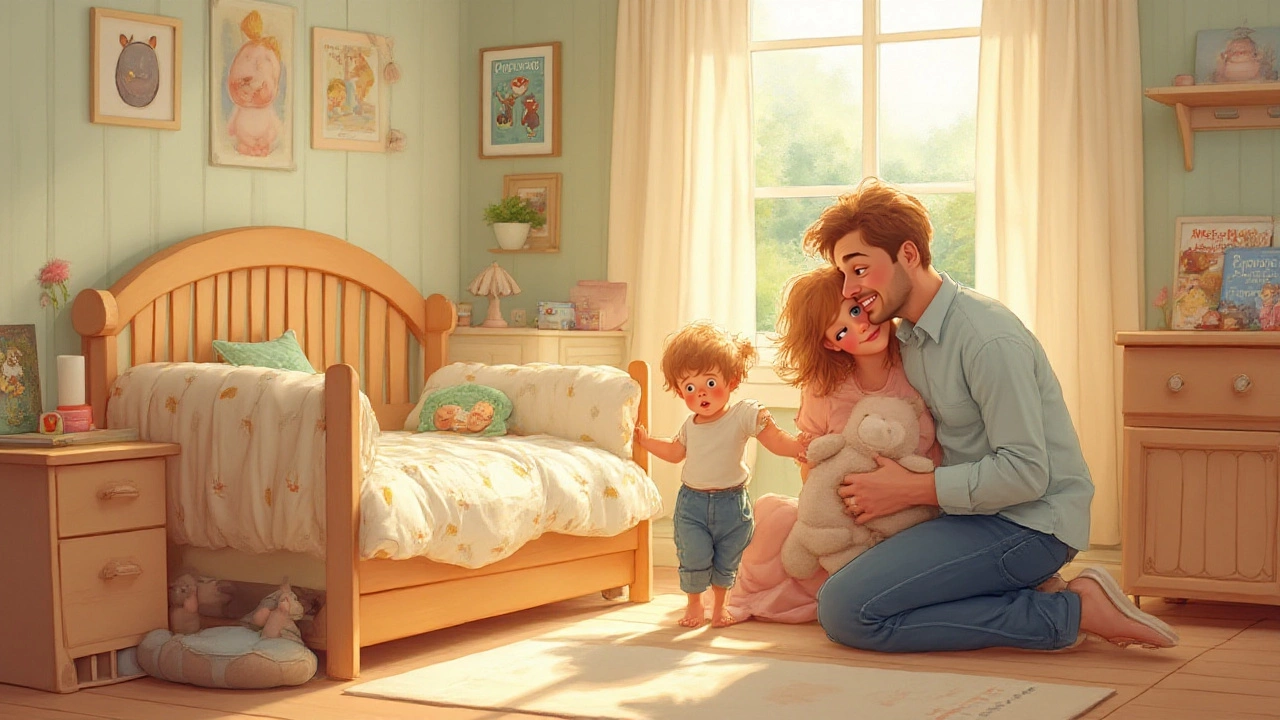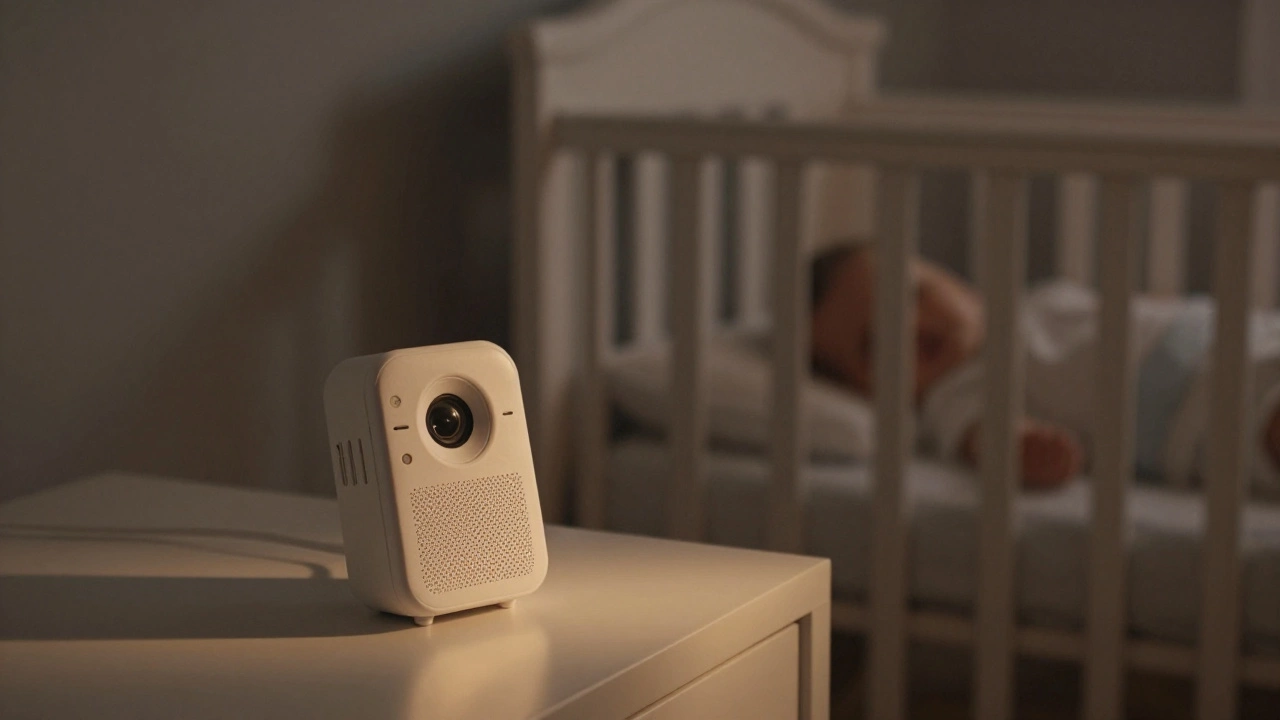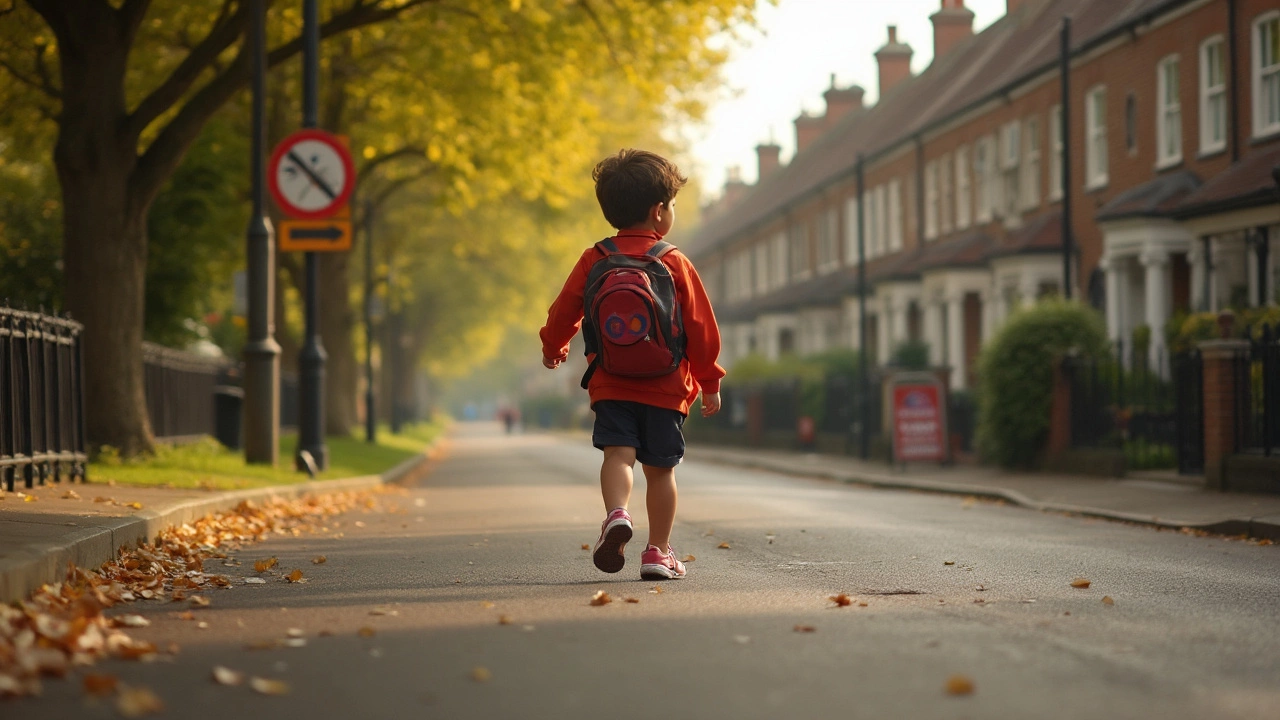What Age Should I Get Rid of My Baby Monitor? Real-World Tips for Parents
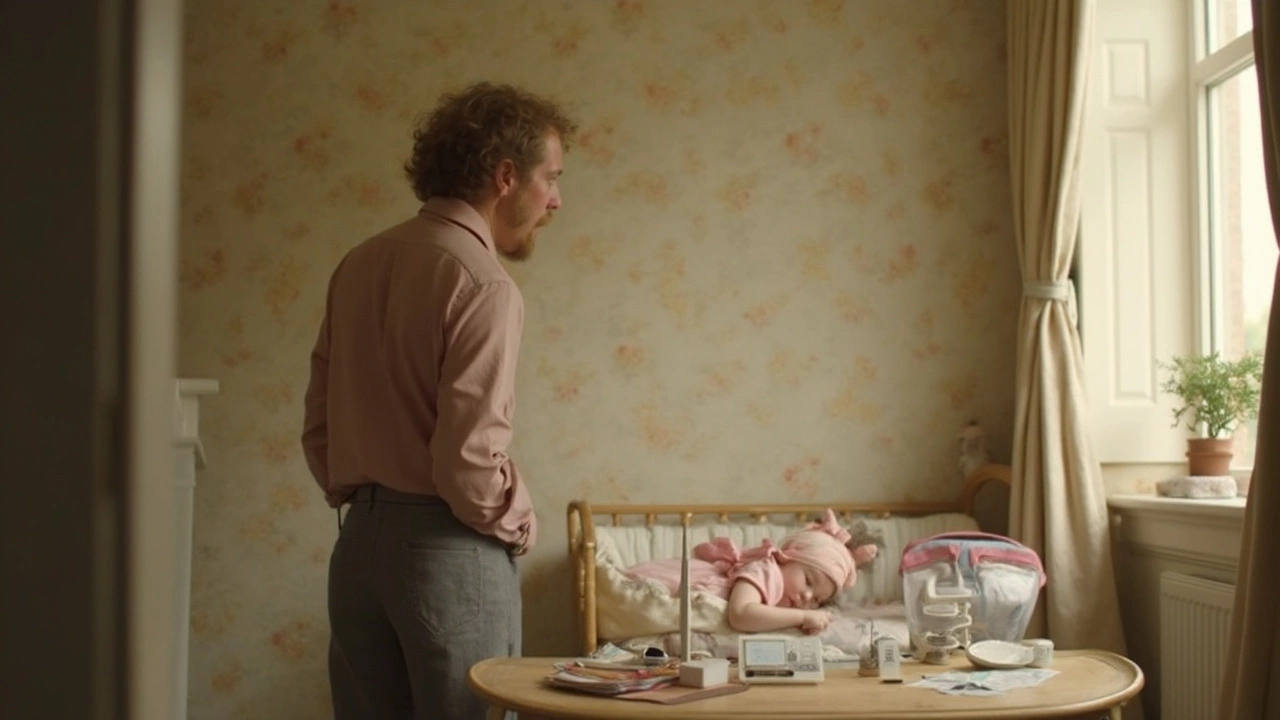
Picture this: your toddler is finally sleeping through the night, but the baby monitor's bright green light still blinks from your nightstand. Sound familiar? You’re definitely not alone, and honestly, you’re not overdoing it. Tons of parents struggle to decide when it’s time to let go of the baby monitor.
Here’s the thing—there’s no magical age carved in stone. Kids are different, households are different, and every parent worries about something unique. What really matters is whether the monitor is still helpful or just feeding your anxiety.
Some experts say you can move on from the monitor once your child’s about 2 years old, especially if they’re sleeping in their own room without trouble. For others, that feels way too soon. A recent survey from 2024 showed most parents drop the monitor somewhere between ages 2 and 4, but a surprising chunk keep it even longer just for peace of mind. That’s totally human.
If your little one can call for you, get out of bed, or is potty training at night, you might not need to listen to every toss and turn anymore. But, if you’ve got stairs, health concerns, or a Houdini climber on your hands, it makes sense to keep watch a bit longer. Listen to your gut, but also check in—are you using the monitor for safety, or is it just a habit at this point?
- The Real Reason Parents Hang On
- Age Guidelines: What Experts (and Real Moms) Say
- Safety, Sleep, and Peace of Mind
- Signs It’s Time to Unplug
The Real Reason Parents Hang On
If you think you’re the only one who keeps a baby monitor around long after your child is out of the crib, think again. Most parents admit it’s less about watching for emergencies and more about wanting peace of mind—or let’s be honest, just plain habit. Once you get used to checking the monitor for every little sound, it’s hard to stop, even after your kid starts sleeping through the night.
Research backs this up. A 2023 parenting trends study reported nearly 58% of parents with kids ages 3 to 5 still regularly use a baby monitor, mostly out of habit and the urge to make sure their child is okay at all times. That ‘just in case’ feeling is powerful, and sometimes it overshadows logic.
Child psychologist Dr. Madeline Harris puts it bluntly:
“For many families, the monitor isn’t just a tech gadget—it’s a comfort blanket. It helps parents feel like they have control, especially during those middle-of-the-night worries.”
There’s also the factor of social comparison. Some parents keep using their monitors because friends or family do it, not because their child needs extra monitoring. And let’s not forget, modern monitors come loaded with cool features like breathing sensors or movement alarms, which can make you second-guess ditching them too soon.
| Reason for Using Baby Monitor | Percentage of Parents |
|---|---|
| Peace of mind | 46% |
| Track sleep/talk patterns | 27% |
| Child safety concerns | 19% |
| Just in case/habit | 8% |
It all boils down to this: having a baby monitor around feels safe. The fear of missing something trumps everything else, even when all signs point to your child being perfectly fine. So if you’re still clinging to that blinking light, join the club—you’re in good company.
Age Guidelines: What Experts (and Real Moms) Say
When should you really retire your baby monitor? There's no strict rule, but both experts and everyday parents have some solid advice. The American Academy of Pediatrics hasn’t set a required age for ditching monitors, but sleep specialists agree you usually don’t need to obsessively monitor healthy children past age 2 unless you have special safety concerns.
Most doctors say once your kid is sleeping in their own room, isn’t waking up for midnight feedings, and can yell or come to you if needed, you’re safe to ease up. If your child’s a climber or has a medical issue, though, parents often hold onto the monitor a bit longer.
Here’s what parents are actually doing: a 2024 poll surveyed 1,000 moms and dads with kids under 6. The results stacked up like this:
| Child's Age | % Still Using Monitor |
|---|---|
| Under 2 | 91% |
| 2-3 years | 67% |
| 3-4 years | 39% |
| 4-5 years | 19% |
| 5-6 years | 6% |
So, how are real moms deciding? It comes down to a mix of habit, kid’s personality, and sometimes just wanting those extra minutes of sleep. Some parents admit to keeping the monitor for longer because it lets them keep an eye out during sickness or potty training at night. Others switch it off when their toddlers start talking well, or when the parents realize the constant noise and blue light is actually making them more anxious, not less.
Want quick guidelines? Try this checklist:
- Your child is sleeping in their own room through the night
- No more night feedings or regular wakings
- They can easily call out for you, or come find you if they wake up
- You don’t have major safety worries
If you can tick off most of these, it’s probably safe to unplug the baby monitor. Still unsure? You’re not alone, and there’s no rush. Every family’s comfort zone is different!
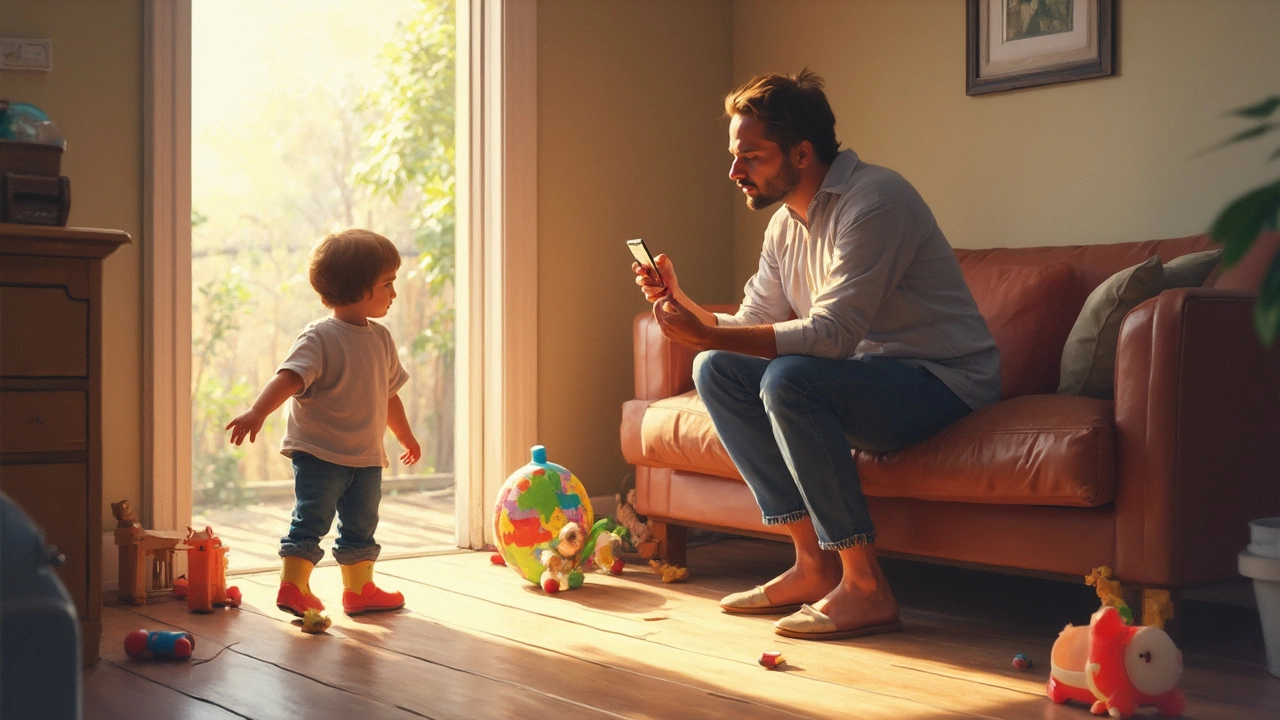
Safety, Sleep, and Peace of Mind
This is where things get real — keeping a baby monitor going “just in case” is basically a rite of parenting. The question is, does having that device actually make your nights safer or just more restless?
If safety is your main hang-up, here’s what you need to know: Studies have found that most major risks, like SIDS, drop sharply after a baby turns one. By the time a child hits 18 months, they’re usually past the stuff that monitors were designed to catch. That said, if your child has health problems or you’re worried about sleepwalking hazards (like bunk beds or open stairs), keeping a baby monitor makes sense.
Sleep is a whole other story. Monitors sometimes end up messing with parents’ rest way more than the kids’. Sounds get amplified, you jump at every sneeze, and you’re up when you could be asleep. It’s no wonder a 2023 survey found that 67% of parents with monitors wake up multiple times at night even after their child is sleeping through. Sometimes, unplugging the monitor does more to help everyone’s sleep than you think.
| Parent Concern | When Monitor Helps | When It Might Not |
|---|---|---|
| Health issues (asthma, seizures, etc.) | Useful, adds real peace of mind | Not needed if no symptoms in months |
| Napping in separate rooms | Good for toddlers who nap away from family areas | Less necessary if common spaces are close by |
| Light sleeping parent | Monitor just causes more waking up | Maybe try less sensitive monitors or turn off sound |
Peace of mind is personal, though. If the monitor helps you relax and you’re not losing sleep, you do you. But if checking the monitor has become a nervous habit, it’s worth asking if it’s actually helping you parent — or just feeding your stress.
Signs It’s Time to Unplug
A lot of parents keep the baby monitor around out of routine, but real signs do show up when it’s finally time to turn it off. So, what are you actually looking for? Let’s break it down.
- Your child sleeps through the night regularly. If bedtime struggles are in the rearview mirror and you’re just hearing shuffling or random babble, the monitor isn’t as crucial as it was before.
- No more frequent wake-ups due to health issues. Kids with breathing problems or medical needs need extra watching, but once your pediatrician clears those concerns and nights stay calm, it’s usually safe to unplug.
- They can get out of bed and call for you. This is a big one. If your child walks, talks, or even shouts for you when they need something, you can hear them without the extra tech.
- You start obsessively checking the monitor—even with no real reason. If peeking at the monitor turns into a nervous habit, it might be causing more stress than relief. Experts from the American Academy of Pediatrics say parents’ sleep quality drops if they’re glued to those screens all night.
- Privacy becomes a hot topic. Older preschoolers might not want to feel watched. When your kid starts noticing the monitor and complains about it, or wants “privacy” for potty training or changing, their comfort is a good signal.
Just to give you a clearer picture, here’s what real parents shared in a 2024 poll about when they stopped using their monitors:
| Age Stopped Monitor | Percentage of Parents |
|---|---|
| Under 2 years | 12% |
| 2-3 years | 48% |
| 3-4 years | 27% |
| Over 4 years | 13% |
When you spot two or three of these signs, go ahead and test a night or two without the baby monitor. You might sleep better—and your kid might even thank you for the vote of confidence.
